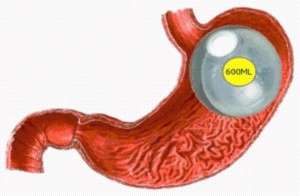According to the Centers for Disease Control (CDC), “Obesity is common, serious, and costly.” The CDC’s website reports that more than one third of all American adults are obese, adding that “obesity-related conditions such as heart disease, stroke, type 2 diabetes, and certain types of cancer can be prevented.” Pretty shocking to think that many of these diseases are largely preventable when obesity is overcome. The cost as well is shocking, as the CDC reports that the estimated annual medical cost of obesity in the United States is close to $150 billion. Sadly, these statistics do not surprise top gastroenterologists. If you are facing obesity-related health problems now or in the future, you may be considering weight loss surgery, but you may also be reluctant to take such drastic measures. Clearly, invasive weight loss surgeries are not for everyone. Thankfully, there are newer, noninvasive weight loss procedures.
ORBERA Intragastric Balloon
ORBERA is a durable gastric balloon that aids the body in adapting to smaller, healthier portions. The volume and shape of ORBERA takes up just enough space within the stomach to help patients who receive it make wiser decisions about their portion sizes. ORBERA can help patients lose up to 3x more weight than with just diet and exercise alone. This procedure works by making patients feel fuller faster. ORBERA is effective at helping patients reduce the risk of developing obesity-related conditions such as heart disease, type 2 diabetes, and weight-related cancers.
The ORBERA procedure is performed under sedation in an endoscopy unit on an outpatient basis. During this procedure, the doctor advances a thin tube (catheter) with an installed intragastric balloon down the patient’s throat and into the stomach. After this occurs, a tiny camera (endoscope) will be advanced down the throat in order for the doctor to view the balloon. The procedure takes only about a half hour, and patients typically go home several hours afterward.
 The most significant risks or side effects from the ORBERA procedure are that about one-third of all patients have pain and nausea soon after insertion of the intragastric balloon. These symptoms, however, typically only last for a few days, and they can be treated with oral medications. Serious risks with ORBERA are rare. These may include the balloon deflating, which may potentially lead to digestive blocking. If this occurs, a patient can develop an ulcer that may require surgery.
The most significant risks or side effects from the ORBERA procedure are that about one-third of all patients have pain and nausea soon after insertion of the intragastric balloon. These symptoms, however, typically only last for a few days, and they can be treated with oral medications. Serious risks with ORBERA are rare. These may include the balloon deflating, which may potentially lead to digestive blocking. If this occurs, a patient can develop an ulcer that may require surgery.
While some weight loss surgeries may be right for some, they can prove too invasive for many patients who do not wish to undergo surgery. Additionally, many overweight or obese patients may be unable to get a recommendation from a doctor for invasive weight loss surgeries, but they may be able to get a doctor’s recommendation for ORBERA. If you are considering weight loss surgery but you don’t like the idea of invasive weight loss surgery, ORBERA may be a good option for you.
Cryolipolysis
Cryolipolysis is also known as ‘Cool Sculpting.’ This procedure involves freezing fat cells in certain trouble spots within the body, which causes the body to begin to dispose of these frozen, damaged fat cells. The process occurs over the course of just a few days or weeks post treatment. Side effects include temporary redness and swelling. There have been no reported deaths from this procedure, and serious side effects are rare. Cryolipolysis is typically chosen because it works well for trouble spots such as stomach, arms, or thighs.
StomaphyX
StomaphyX involves a procedure that is performed by inserting a microscopic camera and suction device down a patient’s throat, into the stomach. The suction device then gently draws the folds of the stomach, which creates folds in the stomach in order to place a band around the stomach to decrease its size. Like ORBERA, StomaphyX encourages a healthier eating plan and lifestyle. Recovery time for this procedure as with ORBERA is shorter than that of regular bypass surgery. This procedure is also much less risky.
If you’ve tried other measures to lose weight unsuccessfully, invasive weight loss surgery doesn’t necessarily have to be the next step. The good news about today’s weight loss procedures is that many of them are noninvasive, requiring no surgery and little down time. For more information about ORBERA and other weight loss procedures, contact a gastroenterologist near you for a consultation.



